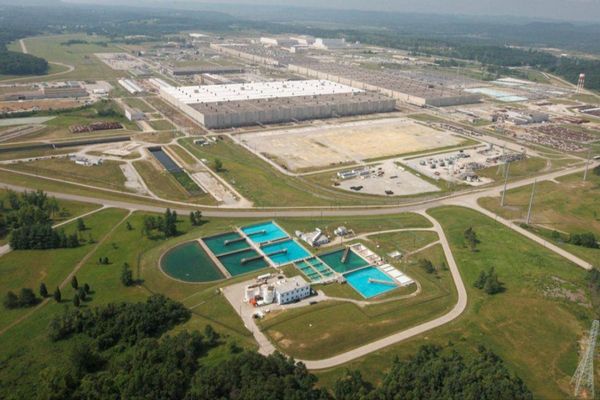
New York (AFP) - US financial authorities seized California's troubled First Republic Bank on Monday and sold it to JPMorgan Chase, hoping to bring to a close a two-month banking crisis that has spooked the financial system.
Under the agreement, JPMorgan, the largest bank in the United States, will assume all of the First Republic's deposits, as well as "almost" all of its assets, according to a statement from the Federal Deposit Insurance Corporation (FDIC).
The federal agency estimates it will have to pay about $13 billion to cover First Republic's losses from the deposit insurance fund.
That fund is financed through quarterly assessments on insured banks.First Republic's 84 branches will be able to reopen Monday as usual.
The actions came after the California regulator appointed the FDIC, an agency in charge of guaranteeing bank deposits, as the receiver of First Republic, to be immediately sold to JPMorgan Chase.
First Republic became the second-largest bank by assets to collapse in US history after it disclosed last week a loss of more than $100 billion in deposits in the first quarter.
After the bank failed to produce a satisfactory rescue plan and with its stock continuing to nosedive, the authorities stepped in, soliciting bids last week from potential buyers, and then taking possession of it.
First Republic had been in limbo for weeks following the March demise of Silicon Valley Bank that had raised worries of a domino effect on other regional lenders.
"Hopefully this will help stabilize everything," JPMorgan Chief Executive Jamie Dimon said on a conference call with reporters before the US stock market opened.
At a White House event Monday President Joe Biden praised the government-engineered sale.
"These actions are going to make sure that the banking system is safe and sound," Biden said.
"All depositors are being protected.Shareholders are losing their investments.And critically, taxpayers are not the ones that are on the hook."
Deposit run
The government's takeover and sale of First Republic comes two months after the liquidation of Silvergate Bank -- a favorite among the cryptocurrency crowd -- and the swift demise of Silicon Valley Bank (SVB), after it took on excessive interest-rate risk.
New York-based Signature Bank also closed a few days after SVB.
Swiss banking giant Credit Suisse became the highest-profile casualty when it was pushed by regulators to merge with its rival, UBS.
To shore up First Republic, authorities reached a deal with 11 major banks in March to extend a $30 billion lifeline to the bank.
But First Republic's April 24 earnings report raised alarm when it disclosed that it lost more than $100 billion in deposits in the first quarter, prompting waves of selling amid doubts on whether it could go on.
By Friday's close, First Republic was worth only $654 million, down from more than $20 billion at the start of the year, and $40 billion at its peak in November 2021.
There were rumors of a rescue package late last week, but nothing concrete until Monday's announcement from the FDIC, which described the JPMorgan purchase as the result of "a highly competitive bidding process."
"Our government invited us and others to step up, and we did," Jamie Dimon, JPMorgan's CEO, said in a statement after the deal was announced.
The transaction "modestly benefits our company overall," JPMorgan said in a news release.
Shares of JPMorgan rose 2.4 percent to $141.66 in afternoon trading.
At first glance, First Republic appeared to be well-positioned: it was known to have a wealthy clientele who deposited large sums.
But the string of banking defaults rattled customers, and a majority of First Republic's loans were fixed-rate mortgages, which have lost value due to soaring interest rates.The bank, like SVB, also had a high percentage of uninsured deposits vulnerable to a bank run.
With its assets standing at $233 billion at the end of March, First Republic is the second-largest bank to fall in US history -- excluding investment banks, such as Lehman Brothers -- after Washington Mutual's bankruptcy during the financial crisis of 2008.
Soon after First Republic's seizure was announced, the US Treasury moved to try to allay concerns.
"The banking system remains sound and resilient, and Americans should feel confident in the safety of their deposits and the ability of the banking system to fulfill its essential function of providing credit to businesses and families," a Treasury spokesperson said.
The upheaval in the banking sector comes on the heels of a shift by the Federal Reserve to counter inflation with aggressive interest rate hikes, a pivot that has significantly revalued assets.
The Fed is expected to again lift interest rates later this week.







